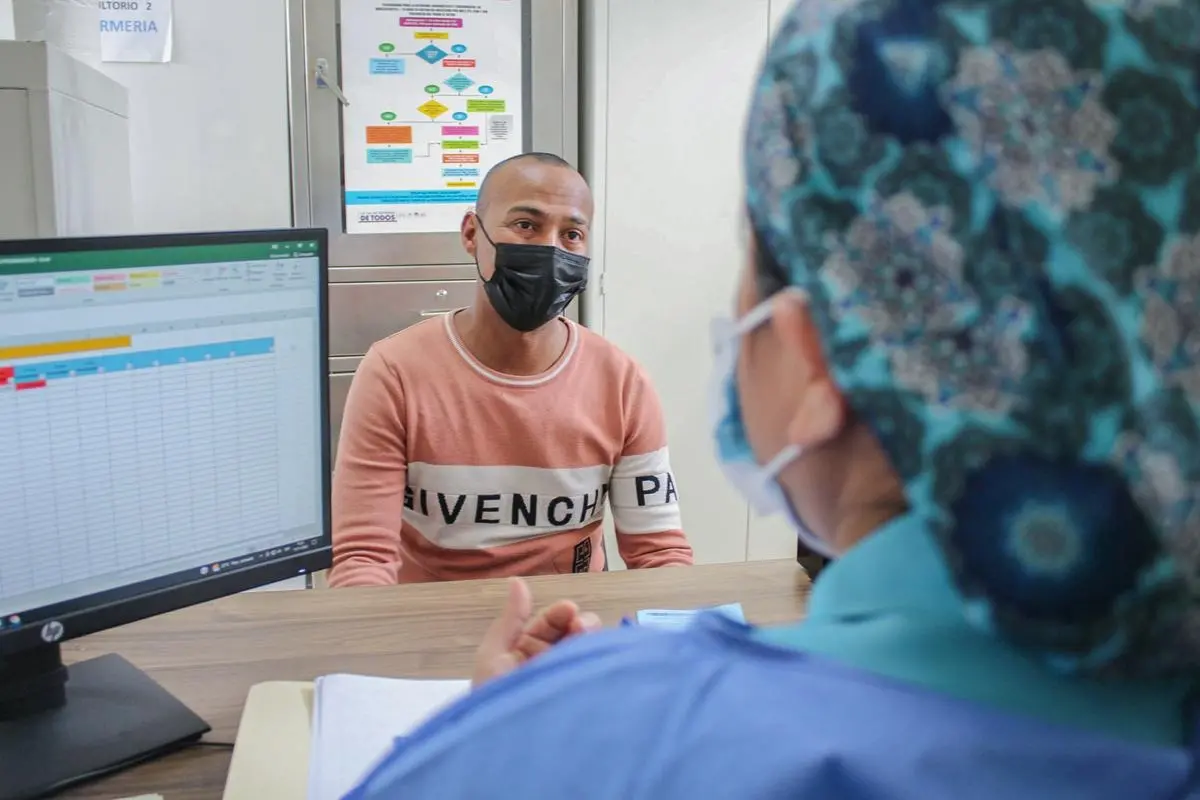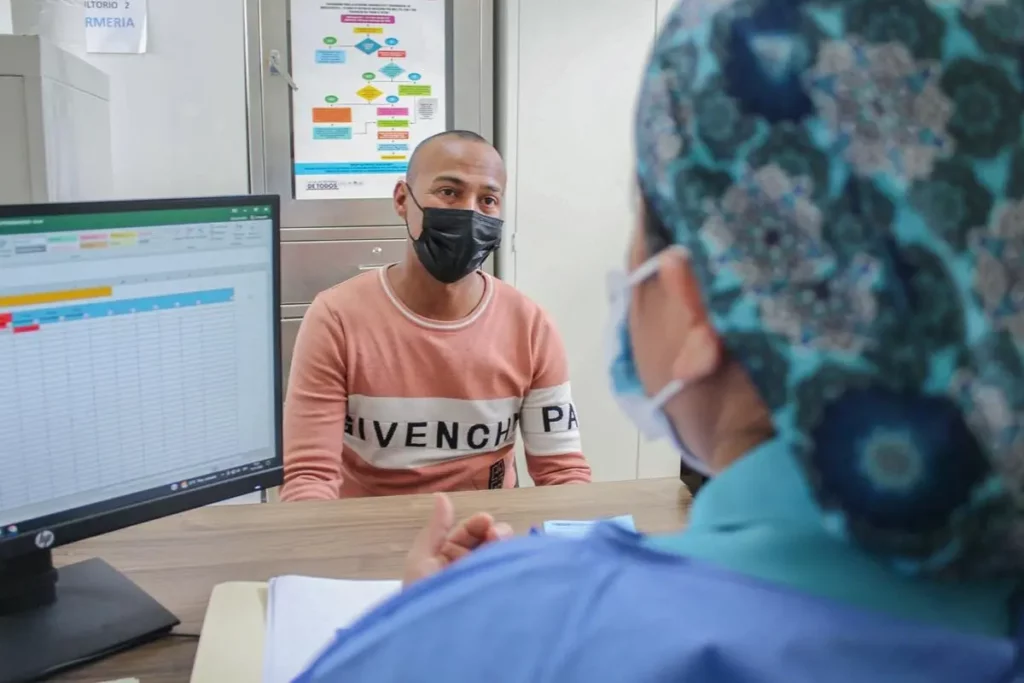HIV treatment, care restore life of 35-year-old migrant

Free testing, treatment, and counseling restores life and hope in Peru
Posted on November 30, 2022

In early 2020, as millions worldwide were grappling with the onset of the pandemic, Cruz Antonio Sifuentes was weathering another storm: a diagnosis with HIV.
The 35-year-old resident of Los Olivos, an impoverished community in Lima, knew little about the disease. But he feared the worst.
“The first thing I thought was that I was going to die,” he says.
He had felt sick for weeks, waking up in the middle of the night with cold sweats and battling so much fatigue that he could only walk a few steps before needing rest.
Despite his worsening symptoms, he worried that he wouldn’t have the money to see a doctor. As the pandemic took hold and cities went into lockdown, he had lost his job as a security guard; it was unclear when his next paycheck would come. And there were only so many jobs he could do in Lima as a migrant from Venezuela.
As he got sicker and his money dwindled, he heard about a free mobile health clinic in his community, geared toward migrants. The clinic was run by Socios En Salud, as Partners In Health is known in Peru.
Sifuentes hadn’t heard of Socios En Salud, but knew he needed help and decided to go. There, at the mobile clinic, he was able to access HIV testing, free of charge.
The result was positive and Sifuentes, devastated.
“That day was horrible,” he recalls. “The truth is that I don’t even know how I had the strength to make it.”
Lifelines
HIV affects 38 million people worldwide. In Peru, 91,000 live with the disease, according to the Ministry of Health. Low- and middle-income countries are disproportionately affected by the virus due to longstanding injustices in global health, including lack of access to treatment.
Socios En Salud has worked in Peru since the 1990s to expand access to treatment and care, first with multidrug-resistant tuberculosis and then with HIV and a host of other health conditions. That work, carried out in partnership with the Ministry of Health and local communities, has saved thousands of lives. This year, Socios En Salud screened 1,500 people for HIV and connected 92% with antiretroviral therapy.
Through Socios En Salud’s support, Sifuentes was able to access free HIV treatment just days after his diagnosis, along with support from a community health worker—one of 262 locals hired and trained by Socios En Salud to help patients stay on track with their treatment and navigate the health system.
HIV treatment and care weren’t the only lifelines for Sifuentes: he was also able to access mental health care.
HIV is fully treatable, and access to antiretroviral therapies (ART) has dramatically improved over the decades, with 75% global ART coverage. But despite this progress, testing and treatment remains difficult to access in impoverished places and the disease is still widely stigmatized and misunderstood.
The AIDS epidemic, which began in the United States in the 1980s, was blamed on gay men, fueling violence and discrimination against the LGBTQ+ community and leading to widespread stigma around the disease, along with the enduring misconception that HIV leads to death.
Such stigma makes mental health support especially crucial for people living with HIV. As part of its work in HIV and other clinical areas, Socios En Salud provides mental health care to patients, free of charge.
‘I see this as a rebirth’
At first, Sifuentes told no one about the diagnosis.
Through Socios En Salud’s mental health program, he was able to access therapy and a support group to process his complex feelings, eventually making the decision to share the news of his diagnosis with the people he trusted most—his best friend and his sister. The disclosure, while difficult, helped him feel less alone and opened up more sources of support in his life.
His physical health was showing signs of improvement, too.
As he took his medication at 10:30 each night, his energy began to return. Day by day, he felt stronger and more in control. His symptoms started to fade.
Now, two years later, Sifuentes says his life has completely changed.
“I no longer feel tired or run out of energy,” he says. “I can do all my activities all day and without feeling sad or depressed.”
He continues to take his medication. He is working again. And he is using his story and first-hand experience to help others, spreading the word about HIV care and countering stigma and misinformation. For those who are navigating the unknowns before and after an HIV diagnosis, he has a simple yet powerful message: healing is possible.
“I was afraid and scared of having the disease. At the same time, I felt relieved…that I was not alone,” he says. “Now, I see this as a rebirth.”
Originally published on pih.org



